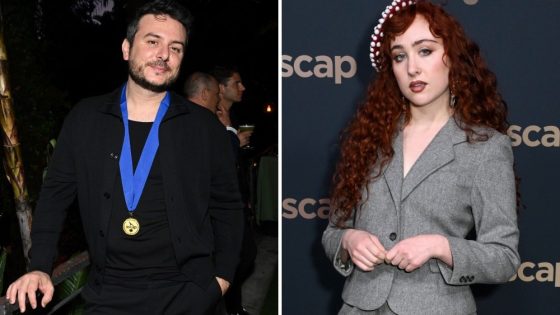When the Emmy nominations were announced, “Winning Time” helmer and executive producer Salli Richardson-Whitfield made history as the first Black woman to be recognized in the drama directing category. Such a tremendous achievement might be tempered by the September 2023 cancellation of the show (on the same day of its Season 2 finale, which she also directed).
But over the 10 months since then, Richardson-Whitfield says she’s been too busy with other opportunities to pause and consider which accolades she may have deserved for her work on the HBO series — much less the fact that they would make history.
“This wasn’t even on my radar,” she tells Variety. “Our show had been canceled, so when I got the call, I was on the set of ‘Task,’ my show that I’m shooting now.”
As an actress, Richardson-Whitfield worked for 20 years on film and in TV before stepping behind the camera. Since 2011, she’s steadily built a resume tackling comedy, drama, action, fantasy and more. The series’ fact-based, metatextual dramatization of the rise of the Los Angeles Lakers not only leveraged almost all aspects of that ever-expanding skill set, but also established her as that most valuable collaborator on whatever project in which she works: in the parlance of “Winning Time,” a utility player.
“Early on in my career, I thought I had to find that one lane, and I said, no, I’m not doing that,” Richardson-Whitfield says.
Salli Richardson-Whitfield, right, with “Winning Time” star Quincy Isaiah, center, and DP Todd Banhazl
HBO
As much as the variety stimulated her creatively, she says that cycling through everything from “Chicago Med” to “The Punisher” to “The Gilded Age” helped insulate her from opposition she expected to face — as much because of the color of her skin as the credits she did or didn’t have. “As a Black female director, I wanted to make sure that, as I was trying to get these bigger shows, they could never say,
‘…but has she?’”
The fact that she had is what helped make “Winning Time” — and, in particular, her nominated episode “Beat L.A.” — such a complex and intimate portrait of the Lakers’ mythic history. “[Cinematographer] Todd Banhazl, who’s been nominated too for the episode, and I spent every weekend really going, ‘How are we going to really find the voice of the basketball so that it’s not just a re-creation of game footage?’” she remembers. “We have these great sports characters, but we also could really push it emotionally.”
That impulse built to the most mesmerizing sequence in the series — a seamless montage that literally follows passes of the basketball between Lakers and Boston Celtics players (in separate games, no less) as both teams advance to their historic showdown in the 1984 NBA Finals. “How do we go through the whole playoffs quickly and excitingly and not just shoot a bunch of basketball?” she remembers asking. “That sequence started with a 16th-of-a-page line that said, ‘And the Lakers and the Celtics head towards each other in the playoffs.’ I think I said to Todd, ‘It’s almost like this circle and we’ll connect each team.’ It became this one revolving game, intercut with Kareem [Abdul-Jabbar]’s speech to his teammates.”
Though she insists “my next playground is movies,” Richardson-Whitfield recognizes that making history with the work she’s done — much less her Emmy-nominated “Winning Time” episode — is not simply about creating bigger or better opportunities for herself, but it’s also about making the path easier for those following in her footsteps.
“If I don’t do better than anyone, they’re going to judge the next woman after me,” she observes. “So, when I got the call, there was this relief that I’ve been doing a good job and I’m doing what I’m supposed to in this world.
“I know for myself, or at least I believe that I’m absolutely the best person for the job. And I think that now people know it.”
Source Agencies




